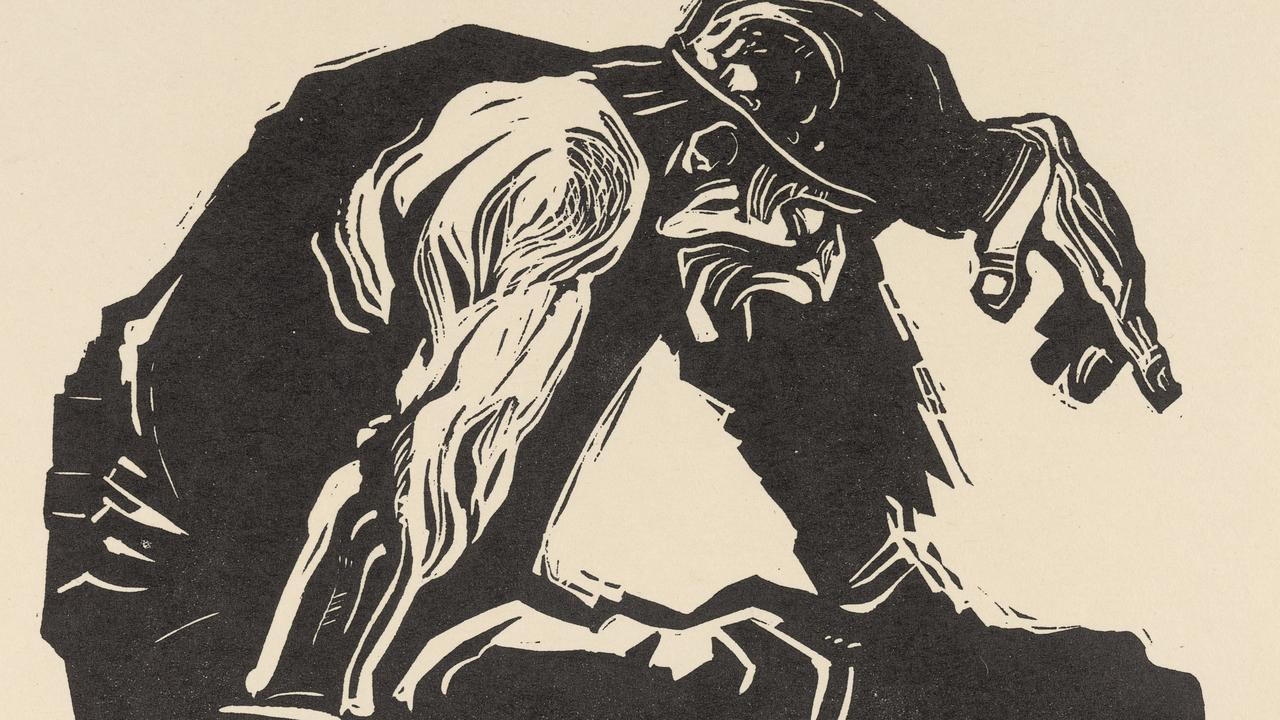Reviews: Greg Quill; Will Vinson; Judith Owen; Reem Kelani; Graham Nash
A who’s who of veteran Australian singer-songwriters put their stamp on a richly merited tribute album.
ROOTS
Some Lonesome Picker
Various artists
MGM
4 stars
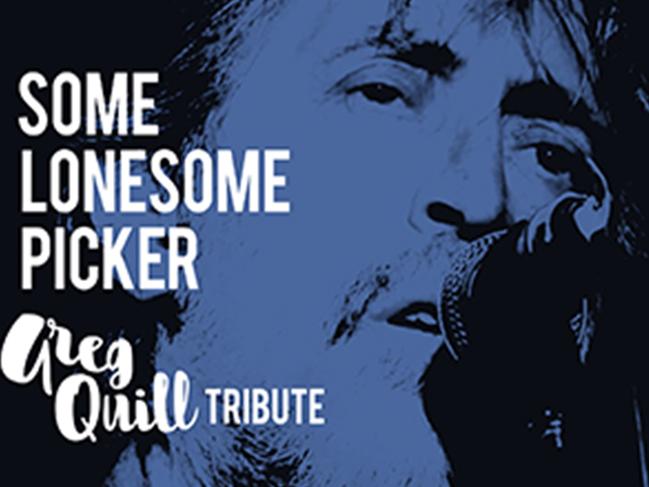
Who better to interpret the work of Greg Quill (1947-2013), one of the most accomplished singer-songwriters of the 1960s-70s domestic music scene, than his peers? Producer Kerryn Tolhurst has done his erstwhile partner in the revered band Country Radio — Australia’s answer to the Byrds, the Flying Burrito Brothers and the Band — proud with a richly merited tribute album, not only in his selection of artists and arrangements, but also with immaculate support, playing guitars and mandolin. Plaudits are also deserved for the who’s who of veteran Australian singer-songwriters who put their stamp on Quill’s poetic lyrics and lilting music. Daddy Cool bandmates singer Ross Wilson and electric guitarist Ross Hannaford (who died in March) get the ball rolling with a Byrds-inflected reading of Just Goodbye that perfectly complements the veracity of verses such as: “You stand inside the rim / Of your crystal captured day / And talk to me of freedom / Never knowing how to say / That smoky shades of changes / Have simply carried you away.”
Country Radio’s biggest selling single, 1972’s Gypsy Queen, is rendered in similarly consummate fashion in a Paul Kelly-Stephen Pigram duet, with acoustic backing reflecting the freewheeling feel promoted from the song’s opening lines: “Risin’ moon and silver road behind me / And I do believe the sky’s about to fall.”
Shane Howard’s mellifluous vocal cords and guitar fingerpicking and Greg Field’s plaintive fiddle chords prove a perfect match in Terry’s Tune. Similar backing works in Glenn Cardier’s tasty Dylanesque take on I’d Not Let You Be and Mike McClellan’s earnest version of Clever Lines. Kevin Bennett’s jaunty interpretation of Observations and Broderick Smith’s more reflective Fleetwood Plain also benefit from fiddle cameos.
Joe Camilleri and Doug Parkinson enjoy more expansive band backing, including Marcia Howard and Bennett’s back-up vocals, in Wintersong and Always to the Light. Parkinson’s smoky delivery of lines such as: “Ravens cross the sun now / My long run is done now / Help me reach the river and some shade” is enhanced by organ wash, piano chords and a characteristically incisive Hannaford axe break.
Russell Morris’s world-weary vocals and executive producer Chris Blanchflower’s bluesy harmonica are more in step with sentiments expressed in Last Time Around than the song’s bright and breezy rhythm. Richard Clapton imbues Quill’s evocative imagery in Almost Freedom with requisite soul as he embraces lines such as: “The poet bleeds against the wall / For all the street to see / He carries just a mirror and a key.” Because he spent the latter half of his life in Canada rather than Australia, Quill’s superlative songcraft might have been overlooked in home circles. The airing of works from his catalogue by comparable craftsmen in Some Lonesome Picker rebalances the ledger.
Tony Hillier
*
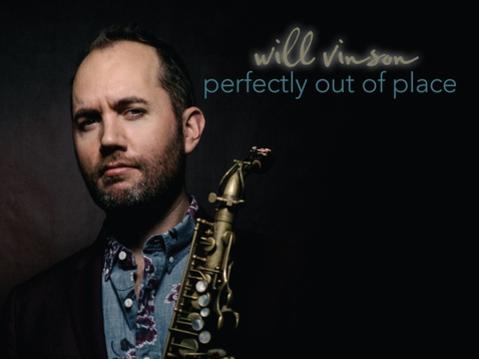
JAZZ
Perfectly Out of Place
Will Vinson
Independent
4.5 stars
This is New York saxophonist Will Vinson’s sixth recording as a leader, where his 10 originals utilise groups from duo to 12-piece, using his quintet plus overdubs, synthesisers, vocals and strings — firsts for Vinson. Vinson gives high praise to the foundation musicians of his quintet, with whom he’s been playing for two decades: guitarist Mike Moreno, pianist Gonzalo Rubalcaba, drummer Jeff Ballard and Matt Penman on bass. This collection incorporates wonderful musical design and, as Vinson says, he’s explored writing music that is “a touch more through-composed” than his previous work. He introduces additional sounds to the quintet: astute overdubs, the Mivos Quartet, vocalist Jo Lawry and percussionist Jamey Haddad. The Mivos Quartet begins the opener, Desolation Tango, in an untango-like semiclassical, pastoral passage, soon joined by restrained guitar notes and Vinson’s passionate soprano sax in a romantically desolate mood. The superb duo of piano and alto traverses an almost tempo-less Limp of Faith, with each player excelling in solo and duet. An exhilarating up-tempo Upside with a memorable post-bop theme lifts off with Vinson’s racing alto underscored by guitar, Rubalcaba’s always imaginative piano and Ballard’s clever stick work. The musicians reassemble for a powerful Skyrider, travelling forcefully with strings weaving around the quintet and its members’ solos, plus Lawry’s amazing wordless vocals. This is a highly artistic album of admirable, varied compositions and skilled musicianship.
John McBeath
*
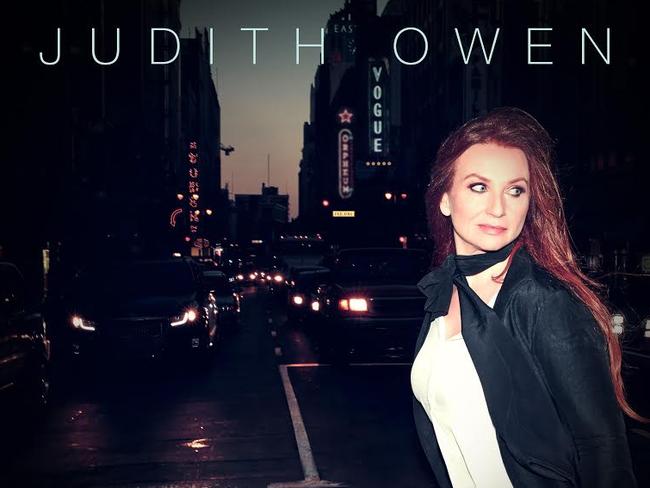
JAZZ/POP
Somebody’s Child
Judith Owen
Twanky Records
4 stars
Judith Owen’s songs are vignettes of life’s mystery, joy and bitter comedy set to a gumbo of pop, jazz, R & B, gospel, soul and melodic rock. Following on from 2014’s Ebb & Flow, the core of her recording band remains the Section — drummer Russ Kunkel, bassist Lee Sklar and guitarist Waddy Wachtel. Ebb & Flow was a concentration of introspection, recorded after the death of Owens’s opera-singer father, a touchstone of her life. On Somebody’s Child, she externalises, often finding her world view in arrears. Tell All Your Children is her shock of recognition that the world is in a parlous state. Lyrically, We Give In is the surrender of ambition and self-respect for suspended animation, its delivery as blithe jazz-rock conveying the relief of an easier ride. On Somebody’s Child the character Adrianne is shuttered behind the Berlin Wall, safe within her tomb: “And we all live with walls around us / But we must break the chains that bind us.” She remakes/remodels Bryan Ferry’s More Than This (the opener to Roxy Music’s Avalon). Owen, with Ferry’s blessing and playing his piano, rages against his savoir-faire, emoting until her last ragged breath of “nothing … nothing”. On Aquarius, from the musical Hair, she transforms hippie-dippy euphoria into satirical smooch jazz cabaret. That’s Why I Love My Baby is slyly smiling sexual innuendo, in concert directed at her bass-player husband, Harry Shearer (The Simpsons, Spinal Tap) who plays upright bass. The impression left by Somebody’s Child is that of a vibrant performer, genre-hopping through a diversity of styles, from the Rachmaninov portent of I Know Why the Sun Shines to the counterpoint of love songs Mystery (dedicated to Shearer) and No More Goodbyes (dedicated to her father).
Anthony O’Grady
*
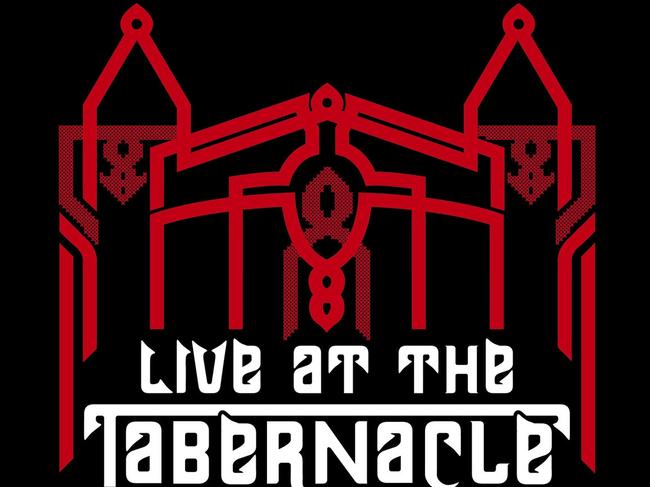
WORLD/FUSION
Live at the Tabernacle
Reem Kelani
Fuse
4 stars
Reem Kelani says this concert, recorded in 2012 at the Tabernacle in London’s Notting Hill as part of the Nour Festival of Arts, was one of her best. It’s easy to accept that verdict, notwithstanding the inability to compare it with anything else: this is her first live album, which comes more than a decade after her first and thus far only studio album, the wonderful Sprinting Gazelle, back in 2005. The singer is in her element, the accompaniment is exquisite and the audience clearly appreciative. Born to Palestinian parents in Manchester, Kelani is more than a musician: she’s a teacher, a scholar and a broadcaster. She is also a force of nature, reminiscent in some ways of the Argentinian great Mercedes Sosa. The instrumentation here is mostly Western, with Bruno Heinen on piano, Ryan Trebilcock on double bass and Antonio Fusco on percussion, plus Tamer Abu Ghazaleh, a visiting Palestinian from Egypt, on oud. Each of them gets the opportunity to showcase their talents. Kelani’s robust vocals are the key element and the overall feel is entirely organic, likely to appeal to jazz enthusiasts as much as it does to fans of a Middle Eastern vibe. From Palestinian wedding songs, poems, lullabies and, inevitably, laments to historical artefacts from Egypt (there’s an amazing segue to It’s a Long Way to Tipperary in The Preachers’ Anthem) and even Turkey, it’s all incredibly uplifting. The audience’s thrill is palpable. This excellent, albeit belatedly issued, recording is the next best thing, and one can only hope further projects of this quality will see the light of day in due course.
Mahir Ali
*
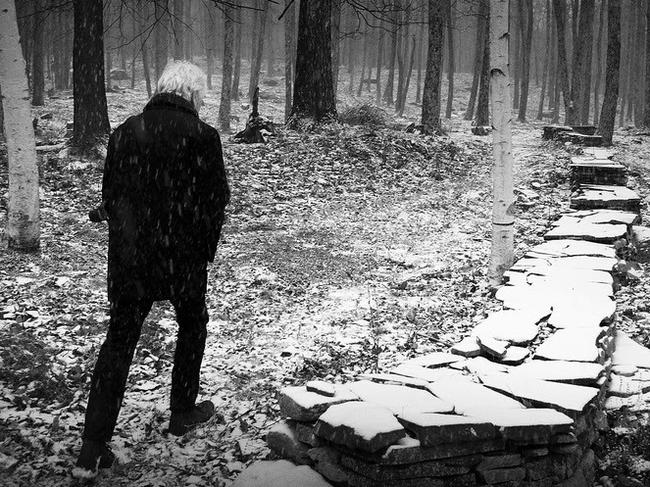
FOLK
This Path Tonight
Graham Nash
Blue Castle/Warner
3.5 stars
Only withered romantics are likely to remember that Graham Nash penned one of the great love songs. His moving, desperate ode to Joni Mitchell, Simple Man, was a highlight from solo debut Songs for Beginners, and for many ranks up there with the best. A touching tribute to Levon Helm on Nash’s new album shows the hirsute septuagenarian songsmith still knows how to tug at the heartstrings. Nash can still do the business. He was, after all, responsible for a clutch of great songs in the 1960s and 70s through the Hollies and with various partnerships involving David Crosby, Stephen Stills and Neil Young. Nash doesn’t attempt to reinvent the wheel with the new album, but the optimism of youth is replaced by sober reflection over the 10 songs co-written with guitarist Shane Fontayne. There’s no Military Madness to soar up the charts, but the songs are consistently good. Make that seriously good for the heartfelt Back Home (the Helm tribute), opener This Path Tonight and the beautifully pensive Myself at Last: “The light is slowly fading /And the night comes on so fast /I’m drowning in my dreams /It’s hard to fight the past,’’ he sings. Understandably, the veteran doesn’t put his light tenor through any vocal gymnastics, but the harmonies flowing through the album are a pleasure. The album ends appropriately with Encore and Nash pondering, like so many before him, what happens when the lights go down for the final time.
Steve Creedy


